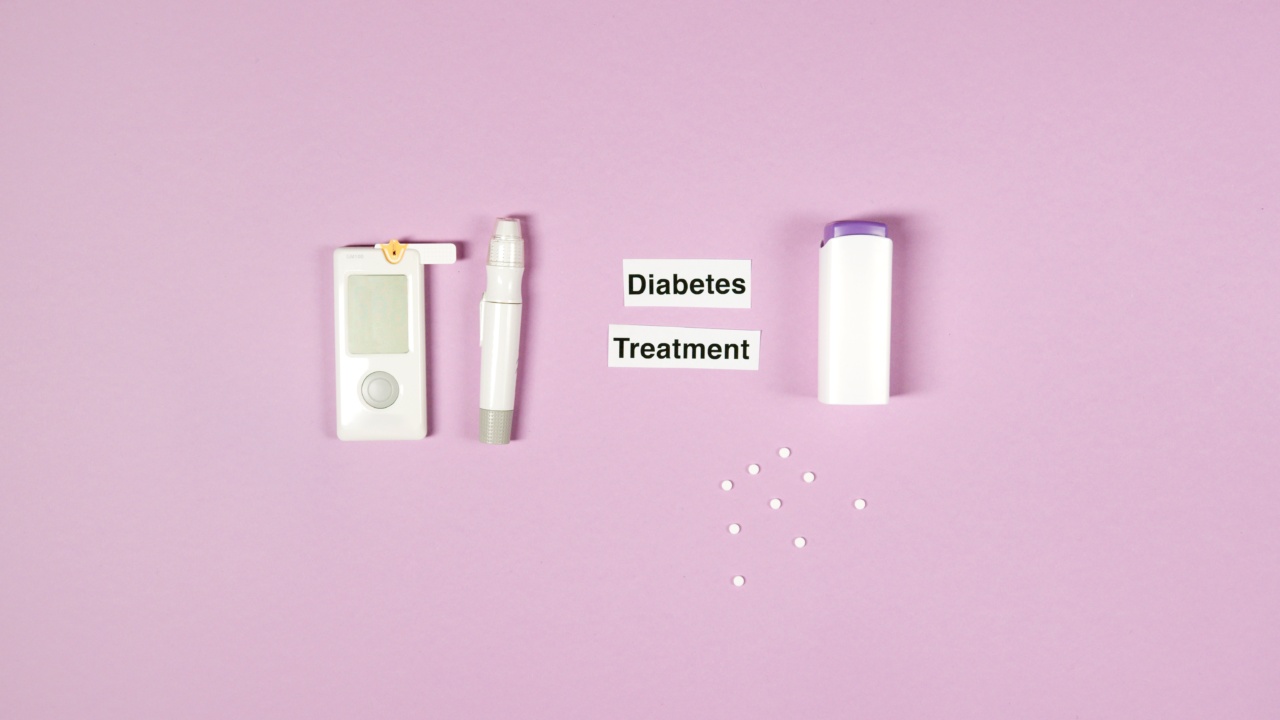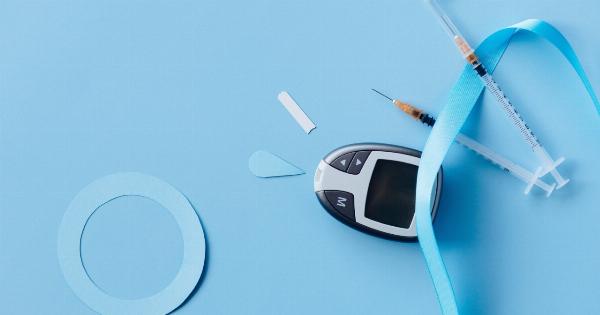Diabetes is a chronic disease that affects millions of people worldwide. It is characterized by high levels of sugar in the blood, which can lead to serious health complications if not managed properly.
However, new advancements in technology are offering hope for those with diabetes. From innovative devices to smart apps, these technological solutions are revolutionizing diabetes management and improving the lives of patients.
In this article, we will explore the latest breakthroughs in diabetes technology and their potential to transform the lives of individuals living with diabetes.
Continuous Glucose Monitoring (CGM) Systems
One of the most significant advancements in diabetes technology is the development of continuous glucose monitoring (CGM) systems.
These devices offer a continuous stream of glucose data, allowing individuals with diabetes to monitor their blood sugar levels in real-time.
CGM systems consist of a tiny sensor that is inserted under the skin to measure glucose levels in the interstitial fluid.
The sensor then sends this information wirelessly to a receiver or smartphone app, which displays the data in an easy-to-read format. With CGM systems, individuals can track their glucose levels continuously throughout the day and receive alerts when their levels are too high or too low.
Insulin Pumps
Insulin pumps are another innovative technology that offers hope for individuals with diabetes. These small devices deliver a steady stream of insulin into the body, eliminating the need for frequent injections.
Insulin pumps consist of a reservoir filled with insulin, a tiny catheter or tube that is inserted under the skin, and a small computerized device that controls the delivery of insulin.
Users can program the pump to deliver basal insulin, which provides a continuous low dose throughout the day, as well as bolus insulin, which is delivered before meals to cover the carbohydrates consumed.
Insulin pumps offer precise insulin delivery, allowing individuals to fine-tune their doses based on factors such as activity level and carbohydrate intake.
This technology provides better glucose control and reduces the risk of hypoglycemia, leading to improved quality of life for those with diabetes.
Artificial Pancreas Systems
An artificial pancreas system is a remarkable breakthrough in diabetes technology. It is designed to mimic the function of a healthy pancreas by automatically adjusting insulin delivery based on real-time glucose levels.
This system consists of an insulin pump, a continuous glucose monitor, and a control algorithm that calculates the insulin dose. The algorithm receives data from the glucose monitor and adjusts the insulin delivery accordingly.
This closed-loop system provides individuals with diabetes with optimal glucose control, reducing the burden of continuous monitoring and manual insulin adjustments.
Artificial pancreas systems are particularly beneficial for individuals with type 1 diabetes, who require insulin 24/7.
This technology eliminates the need for frequent finger pricks and manual insulin calculations, allowing for more flexibility in daily activities and improved overall glycemic control.
Smartphone Apps for Diabetes Management
Advancements in smartphone technology have paved the way for innovative apps that assist individuals with diabetes in managing their condition.
These apps offer a wide range of features, including glucose tracking, meal planning, medication reminders, and personalized coaching.
Glucose tracking apps allow users to record their blood sugar levels and analyze trends over time. Some apps also integrate with CGM systems, enabling real-time data synchronization.
By visualizing their glucose data, individuals can gain insights into their diabetes management and make informed decisions about dietary choices and medication adjustments.
Meal planning apps help individuals with diabetes make healthier food choices by providing detailed nutritional information. Users can track their carbohydrate intake and learn about the glycemic index of different foods.
Some apps even offer personalized meal plans tailored to an individual’s specific dietary needs and preferences.
Medication reminder apps are particularly useful for individuals who take multiple medications or insulin injections throughout the day. These apps send notifications, reminding individuals to take their medication at the prescribed times.
They can also track medication intake, ensuring adherence to the prescribed treatment plan.
Personalized coaching apps harness the power of artificial intelligence to provide individuals with personalized guidance and support.
These apps analyze the user’s data and provide actionable insights and recommendations to improve diabetes management. They can offer tips for blood sugar stabilization, exercise suggestions, and even connect individuals with healthcare professionals for remote consultations.
Smart Insulin Pens
For individuals who still require insulin injections but prefer a more modern and connected approach, smart insulin pens offer a convenient option. These pens are equipped with Bluetooth technology and sensors that capture data during injections.
The collected data, such as the time and dosage of each injection, can be wirelessly transmitted to a smartphone app.
This allows individuals to track their insulin usage and share the information with healthcare professionals, making it easier to monitor and adjust their treatment plan if necessary.
Smart insulin pens also provide reminders for injections and can store the history of injections for long-term tracking.
This technology promotes better adherence to treatment protocols and enables a collaborative approach between patients and healthcare providers.
Implantable Devices
Implantable devices are an exciting area of development in the field of diabetes technology. These devices can monitor blood sugar levels and deliver insulin autonomously, minimizing the need for manual intervention.
One example of an implantable device is an encapsulated islet cell system. Islet cells are responsible for producing insulin in the pancreas. In this technology, islet cells are encapsulated in a biocompatible material and implanted into the body.
The encapsulation protects the islet cells from the immune system, allowing them to function and produce insulin without the need for immunosuppressant drugs.
Implantable devices offer the potential for long-term glucose control, reducing the risk of diabetes-related complications.
Ongoing research and development in this area hold promise for individuals living with diabetes, offering the hope of a more seamless and less burdensome approach to diabetes management.
Conclusion
New technology is significantly improving the lives of individuals with diabetes.
From continuous glucose monitoring systems and insulin pumps to artificial pancreas systems and smartphone apps, these technological advancements are revolutionizing diabetes management. The ability to track glucose levels in real-time, automate insulin delivery, and access personalized coaching through smartphones has transformed the way individuals with diabetes manage their condition.
With these advancements, individuals with diabetes can achieve better glycemic control, reduce the risk of complications, and enjoy a higher quality of life.
As research and development in diabetes technology continue to evolve, the future looks promising for those with diabetes.




























